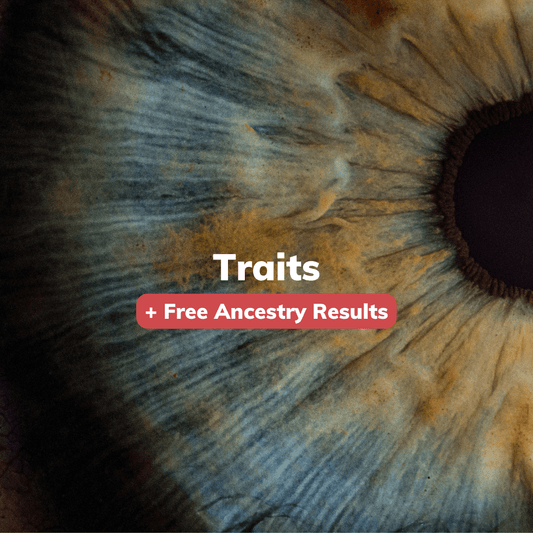
Folate in skincare
Celine HaarhoffFolate, also known as vitamin B9, is an essential nutrient that plays a crucial role in the health of our skin. In this article, we will explore the concept of genetic predisposition to folate in skincare, the symptoms that may be associated with this condition, and how a genetic test can help determine if you are at risk.
First, let's take a closer look at what folate is and why it is important for our skin. Folate is a water-soluble vitamin found in a wide range of foods, including leafy green vegetables, legumes, fruits, and grains. This vitamin plays a vital role in the production of DNA and RNA, the genetic material found in all our cells.
It is also involved in synthesizing amino acids, the building blocks of proteins, and the metabolism of carbohydrates and fats.
In the skin, folate synthesizes collagen and elastin, two proteins that give our skin its strength and elasticity. It also produces melanin, the pigment that gives our skin its color. Folate deficiency can lead to a number of skin-related problems, including dryness, flakiness, and discoloration. In severe cases, it can even lead to skin ulceration and infection.
But why are some people genetically predisposed to folate deficiency in their skin? The answer lies in our genes. Our genes determine many of our traits, including our physical characteristics, our susceptibility to diseases, and our response to medications. Certain genetic variations can increase the likelihood of this condition in the case of folate deficiency in the skin.
These genetic variations can be inherited from our parents and affect how our bodies process and use folate. For example, some people may have a genetic variant that reduces the activity of an enzyme called methylenetetrahydrofolate reductase (MTHFR). This enzyme is involved in folate metabolism, and a reduction in its activity can lead to folate deficiency in the skin.
The genetic test results can help you, and your dermatologist develop a personalized skincare plan that considers your unique genetic makeup. If the test shows that you are at risk of folate deficiency in your skin, your dermatologist may recommend that you include more folate-rich foods in your diet and consider using skincare products that contain folate.
It's important to note that a genetic test is not a diagnostic tool. It cannot tell you whether or not you have folate deficiency in your skin. Still, it can provide valuable information to help you and your dermatologist make informed decisions about your skincare regimen.
In conclusion, genetic predisposition to folate in skincare is a complex topic that is gaining increasing attention in dermatology. Folate is an essential nutrient involved in our skin's health, and certain genetic variations can increase the likelihood of folate deficiency in the skin.


